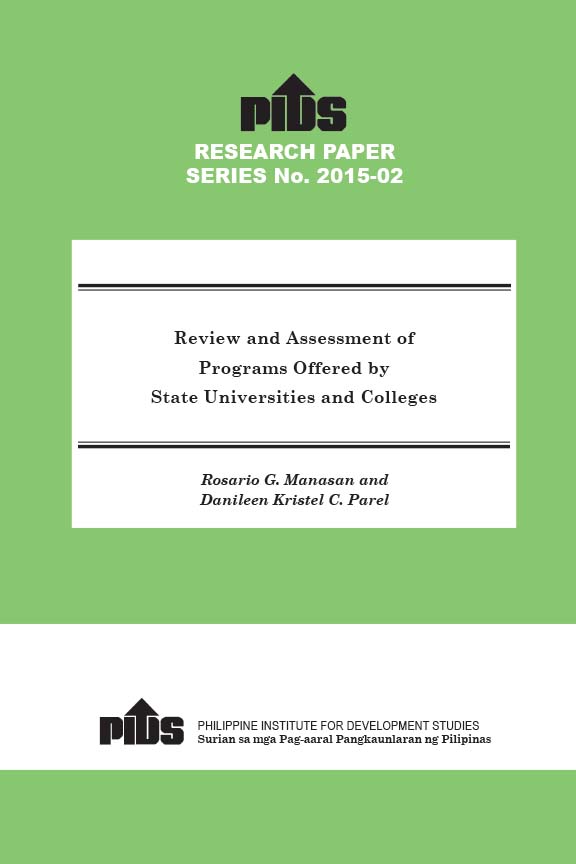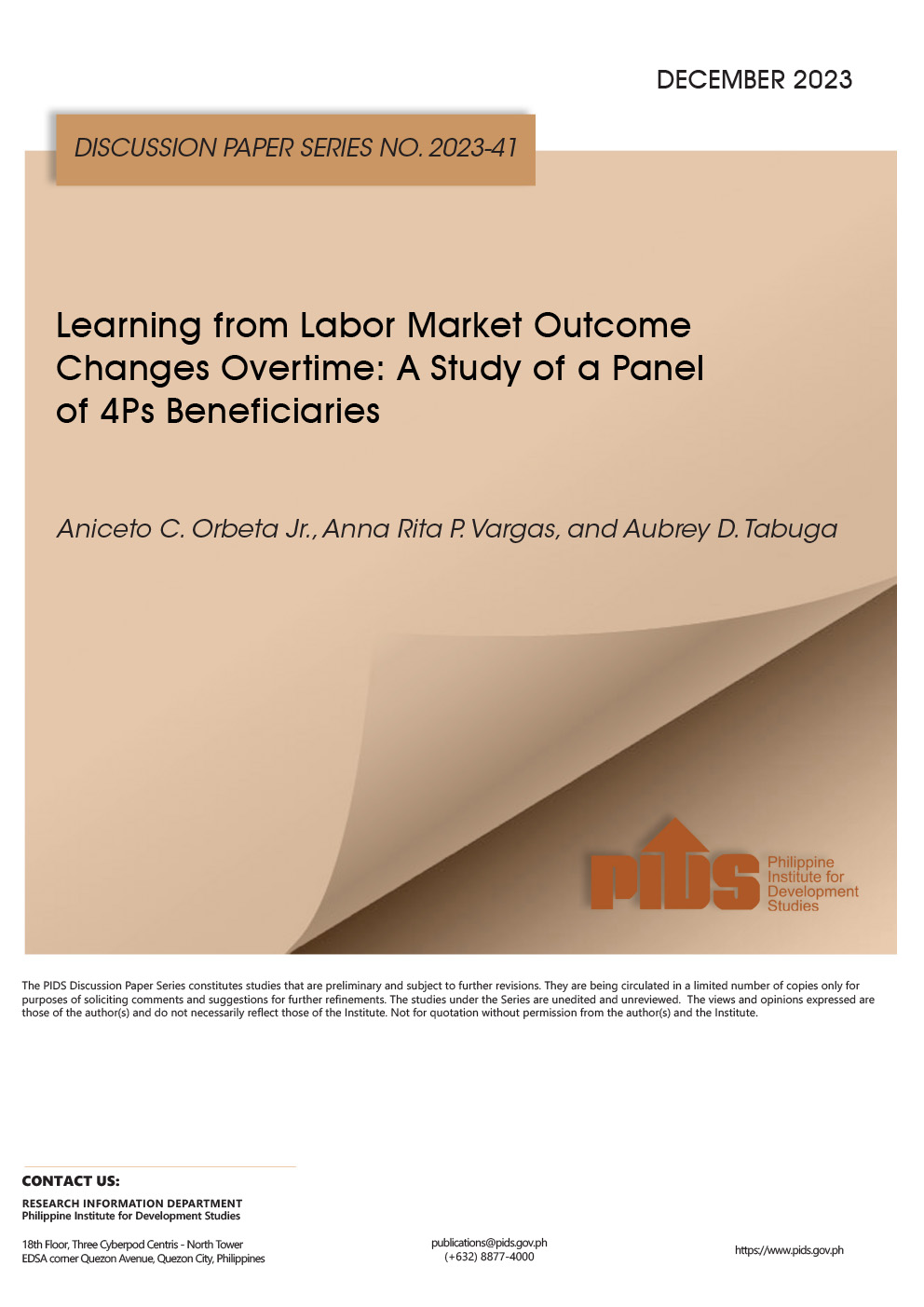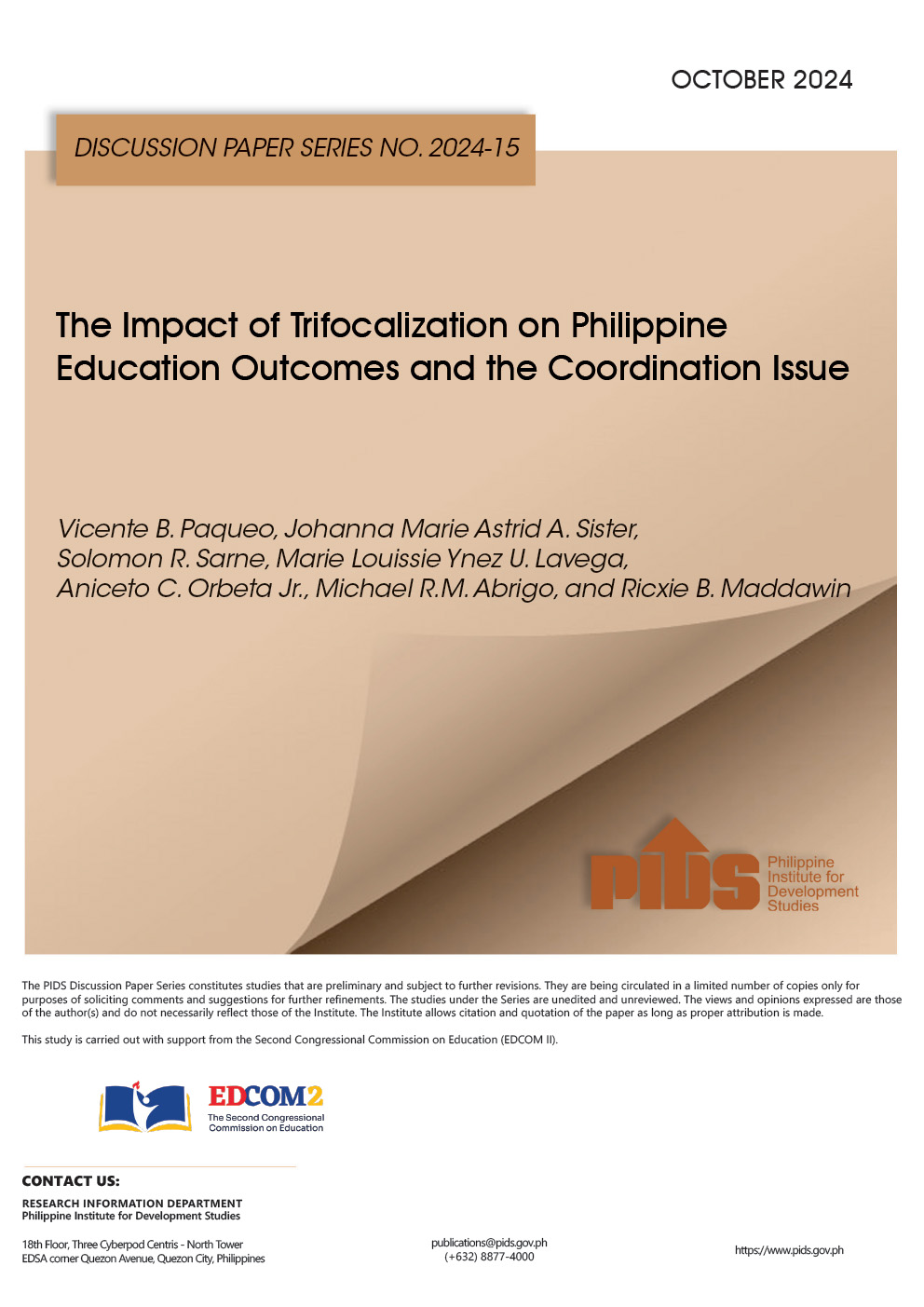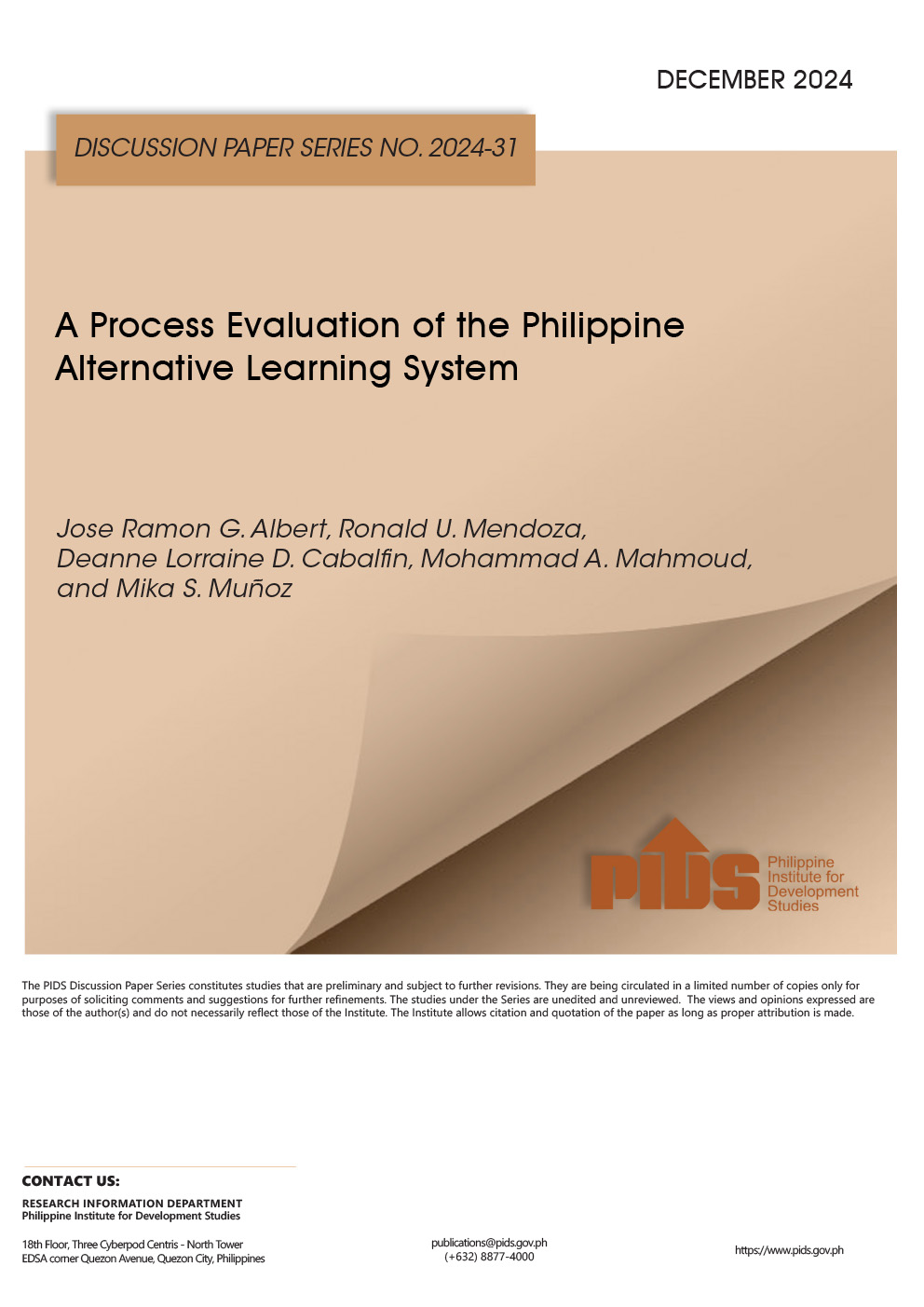The state universities and colleges (SUCs) in the Philippines have always been a major issue mainly because of the poor quality of education that most of them offer, the undeveloped management and financial systems, and the inequality of access. And yet the government has been providing them considerable funding support (e.g., the budget allocation for FY 2012 amounts to PHP 26 billion) primarily due to the importance of tertiary education in promoting human development and improving the economy's competitiveness.
A review of the mandates of the various SUCs in the selected regions covered by this study indicates that the mandates are fairly broad, to start with. But beyond this, the charters of most SUCs allow them to offer programs outside of their core mandates. Given the broad mandates of SUCs, there is, therefore, a substantial duplication in their program offerings. The high rates of program duplication appeared to be associated with an increase in the number of programs offered by SUCs during the period. Although SUCs perform better than private higher education institutions (PHEIs) in over 84 percent of professional board examinations (PBEs), SUCs have been able to improve their advantage further relative to PHEIs in the last seven years in 31 percent of the PBEs. Perhaps what is more worrisome than the persistently low overall average passing rate in PBEs is the preponderance of SUCs/PHEIs with zero passing rates in many PBEs during 2004–2011. The study offers some recommendations; among others, the Commission on Higher Education needs to enforce more vigorously its policy of closing existing programs of SUCs and PHEIs that perform under par year after year; and more effective measures to improve the quality of instruction should include faculty development and facilities upgrading.
Citations
This publication has been cited 2 times
- Sansolis , Evans and Carmenda S. Leonoras. 2021. Viability of a technology-based education afterschool program. TechHub Journal, 19, No. 1, 76-100 . TechHub Research.
- Sansolis, Evans B. and Carmenda S. Leonoras. 2021. Viability of a technology-based education afterschool program. Technium Social Sciences Journal, 19, no. 1, 76-100. Technium Science.













